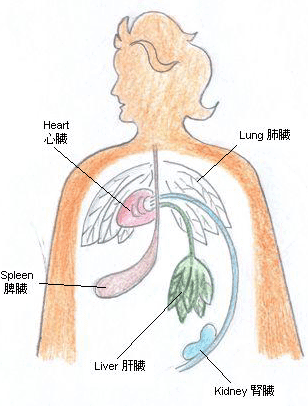In China, Chinese herbs and other forms of treatment have been used for menstrual disorders for a long time. They are effective because they treat the root cause, so individuals can live without painkillers or period regulators. Some physicians even claim there are no untreatable cases only that longer courses of therapy are required. The most ideal therapy is when each treatment is refined and tailored according to a particular condition. A treatment course over three menstrual cycles is usually required for long-term effects, but the precise duration is determined by a particular woman's condition.
For premenstrual syndrome (PMS), TCM therapeutic strategies aim at resuming organ functioning, in particular to liver, spleen and kidney. The kidney produces tian gui and motivates menstruation process; the liver provides blood to form menses; the spleen produces nutrient essence which is the source of blood and qi (vital energy) production. In addition, regulating the blood and qi flowing is always necessary, so that a smooth menstrual process is ensured. From a TCM perspective, PMS symptoms like mood swings, bloating, cramping and fatigue are primarily due to a non-smooth menstrual process, and are always associated with the three organs.
There are different treatment modalities for PMS, which include syndrome-based prescriptions, patent medicine, Chinese herbs to regulate menstruation, acupuncture, otopuncture, massage, special diets and even integrated approaches of both Chinese and Western medicines.
The above may be used singly or in combination. Among them, each physician has his own particular therapeutic modalities that work best for them. Individuals should also note that the information described in this chapter are not the only ways for TCM to diagnose or treat this condition.
TCM believes that predisposing factors for PMS are liver and kidney disharmonies.



